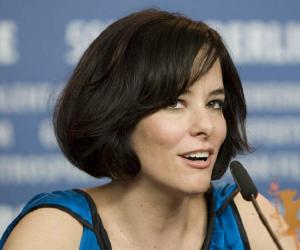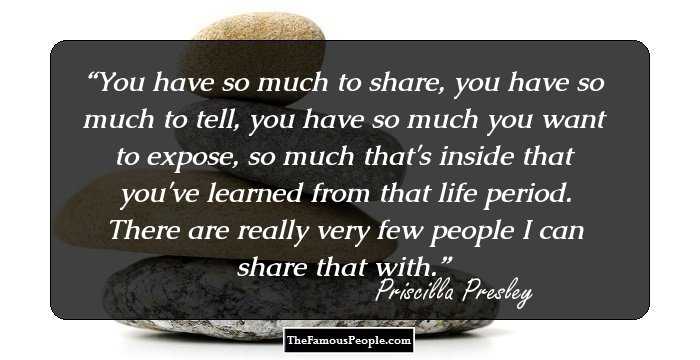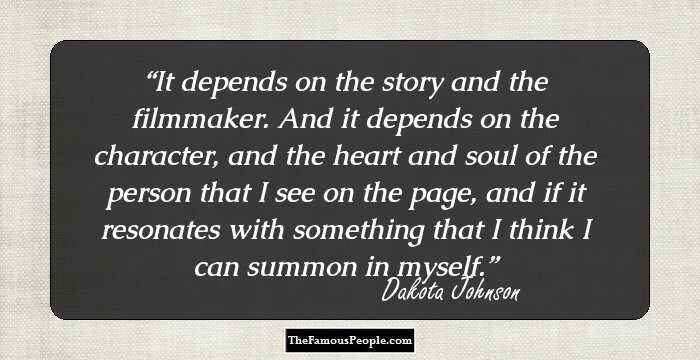![I've gotten to portray things in [Christopher Guest's] movies that I wouldn't have in others.](https://quotes.thefamouspeople.com/images/quotes/parker-posey-126358.jpg)
I've gotten to portray things in [Christopher Guest's] movies that I wouldn't have in others.
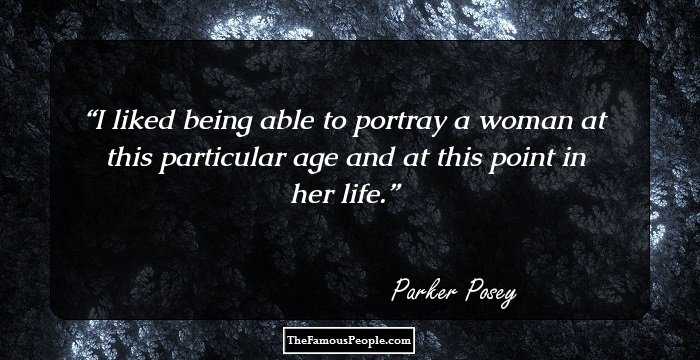
I liked being able to portray a woman at this particular age and at this point in her life.
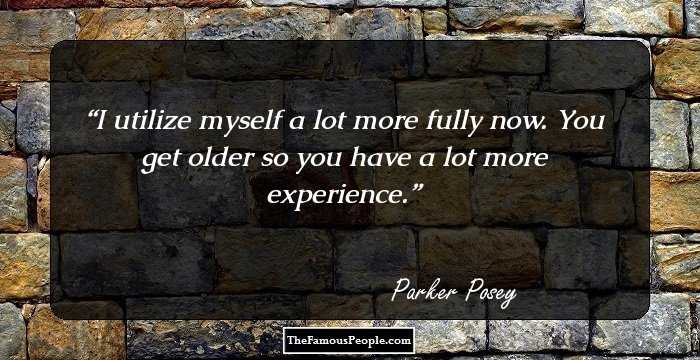
I utilize myself a lot more fully now. You get older so you have a lot more experience.
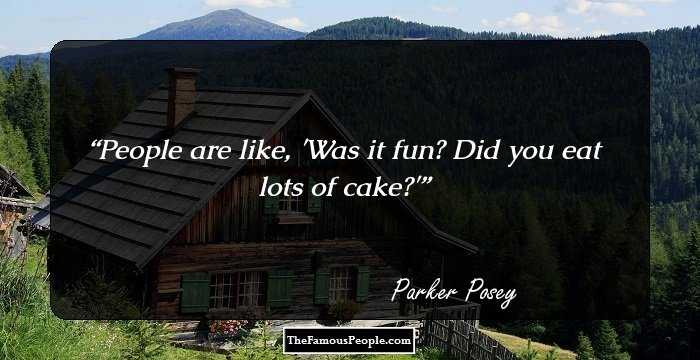
People are like, 'Was it fun? Did you eat lots of cake?'
![I don't want to sound like too much of a drama queen! But I'm not going to tell you, 'Oh, it's just so much fun.' It's work [working on film].](https://quotes.thefamouspeople.com/images/quotes/parker-posey-126354.jpg)
I don't want to sound like too much of a drama queen! But I'm not going to tell you, 'Oh, it's just so much fun.' It's work [working on film].
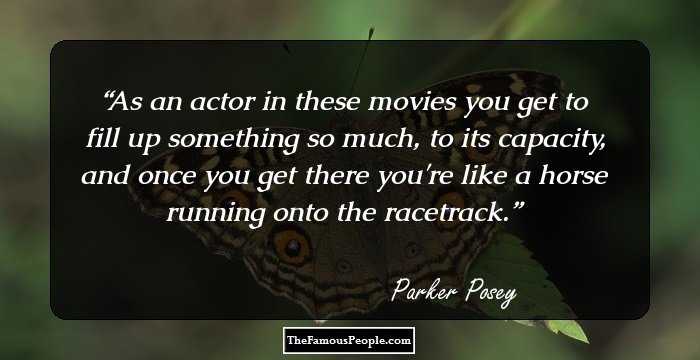
As an actor in these movies you get to fill up something so much, to its capacity, and once you get there you're like a horse running onto the racetrack.
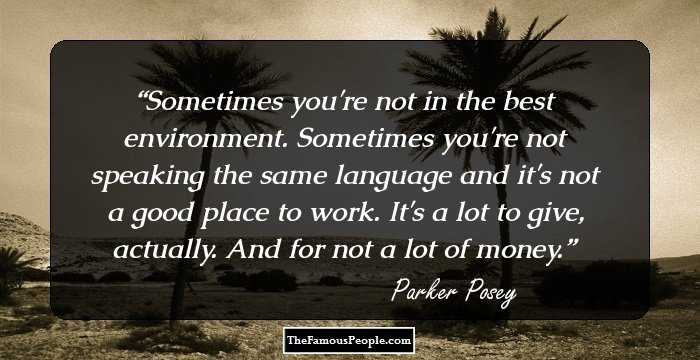
Sometimes you're not in the best environment. Sometimes you're not speaking the same language and it's not a good place to work. It's a lot to give, actually. And for not a lot of money.
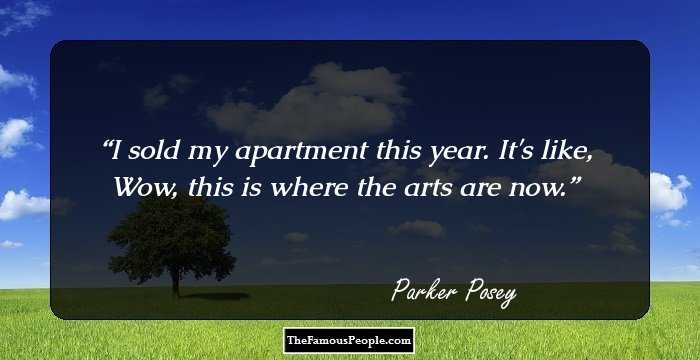
I sold my apartment this year. It's like, Wow, this is where the arts are now.
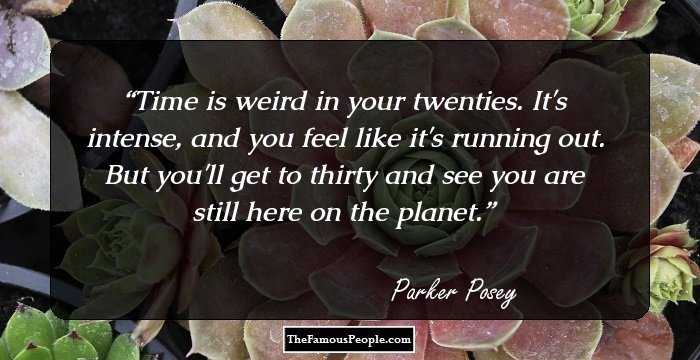
Time is weird in your twenties. It's intense, and you feel like it's running out. But you'll get to thirty and see you are still here on the planet.
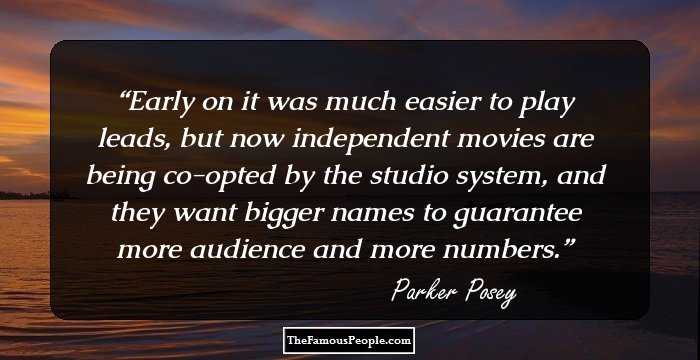
Early on it was much easier to play leads, but now independent movies are being co-opted by the studio system, and they want bigger names to guarantee more audience and more numbers.
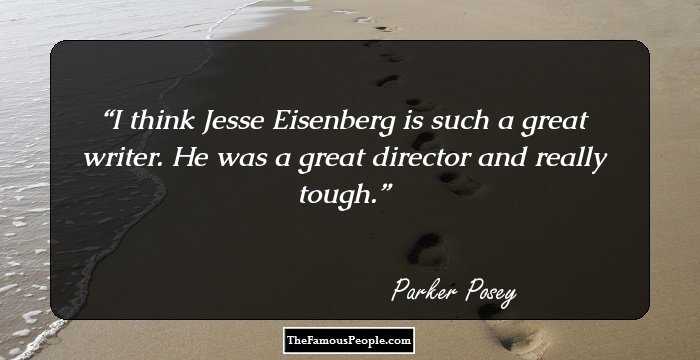
I think Jesse Eisenberg is such a great writer. He was a great director and really tough.
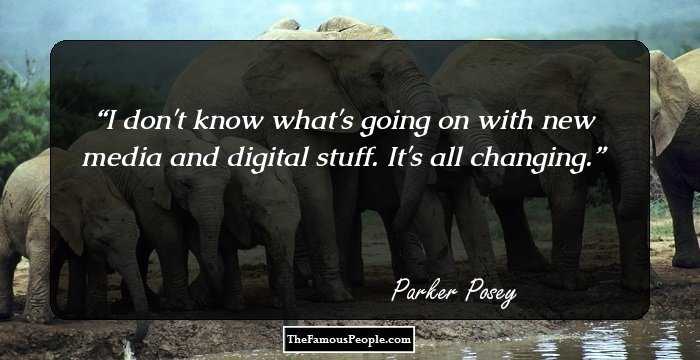
I don't know what's going on with new media and digital stuff. It's all changing.
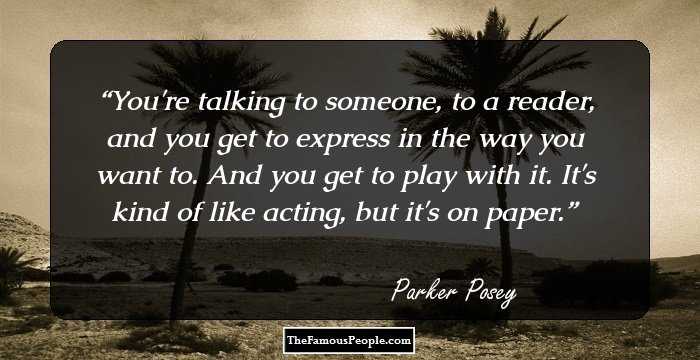
You're talking to someone, to a reader, and you get to express in the way you want to. And you get to play with it. It's kind of like acting, but it's on paper.
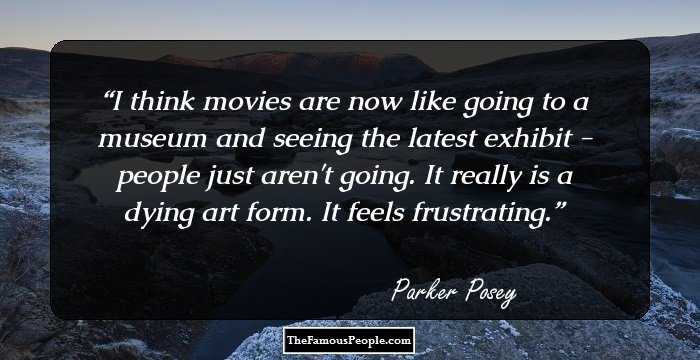
I think movies are now like going to a museum and seeing the latest exhibit - people just aren't going. It really is a dying art form. It feels frustrating.
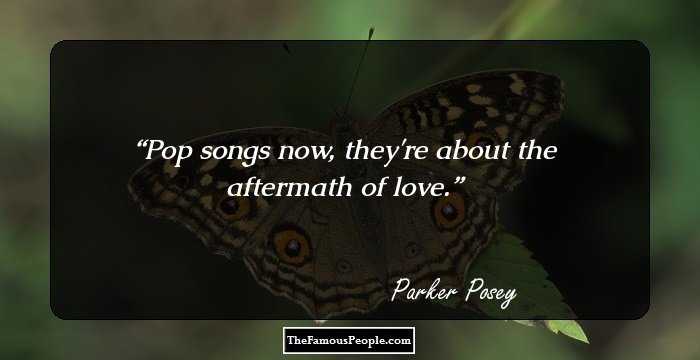
Pop songs now, they're about the aftermath of love.
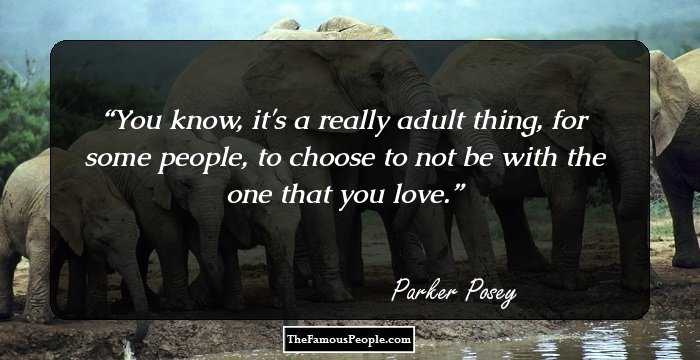
You know, it's a really adult thing, for some people, to choose to not be with the one that you love.
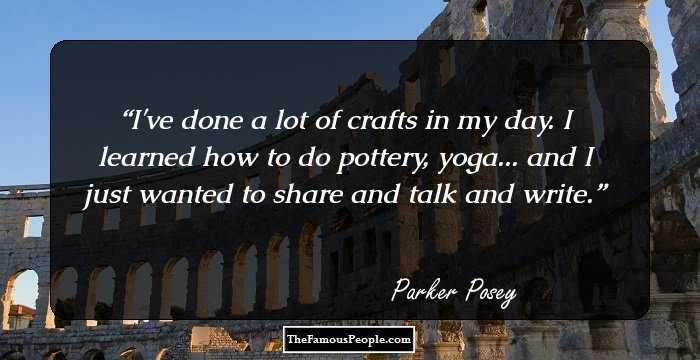
I've done a lot of crafts in my day. I learned how to do pottery, yoga... and I just wanted to share and talk and write.
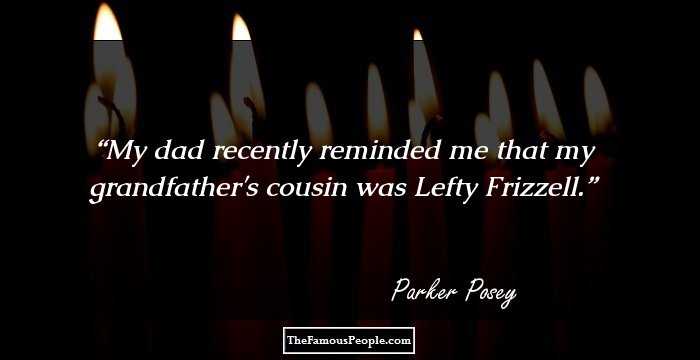
My dad recently reminded me that my grandfather's cousin was Lefty Frizzell.
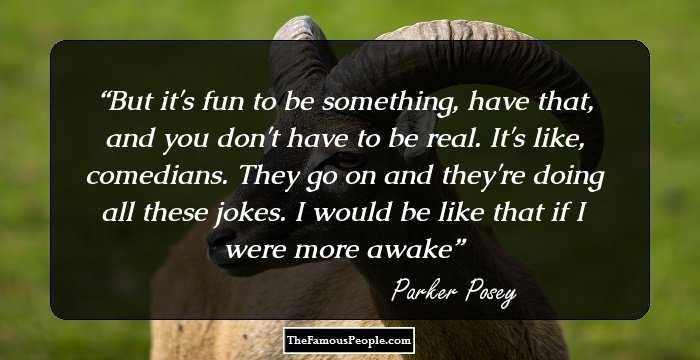
But it's fun to be something, have that, and you don't have to be real. It's like, comedians. They go on and they're doing all these jokes. I would be like that if I were more awake
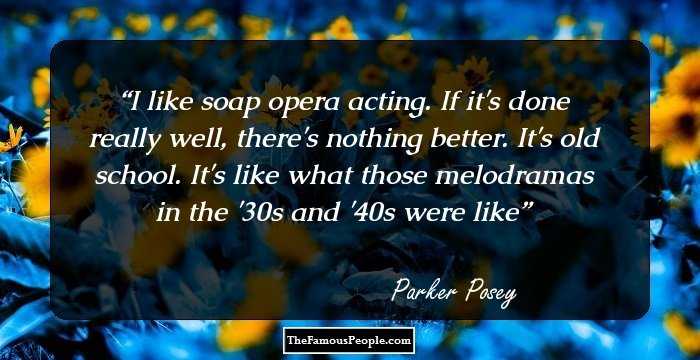
I like soap opera acting. If it's done really well, there's nothing better. It's old school. It's like what those melodramas in the '30s and '40s were like
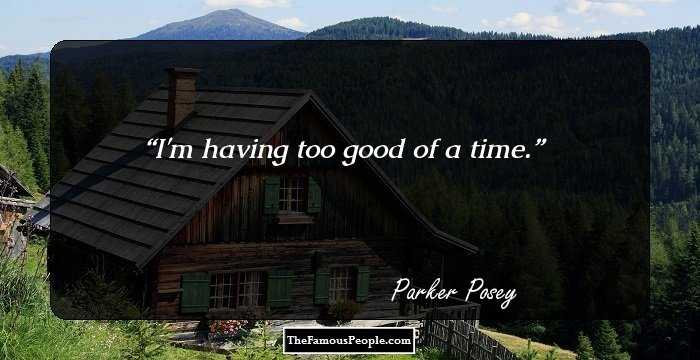
I'm having too good of a time.
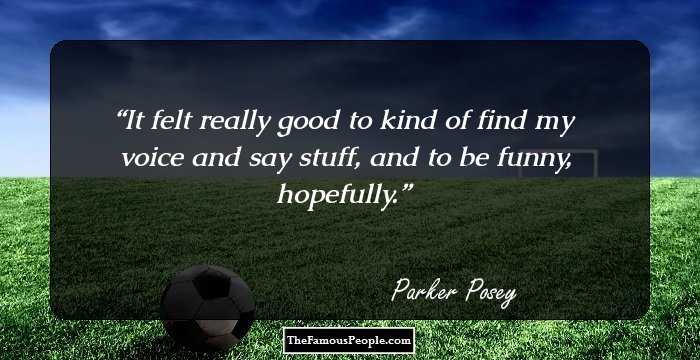
It felt really good to kind of find my voice and say stuff, and to be funny, hopefully.
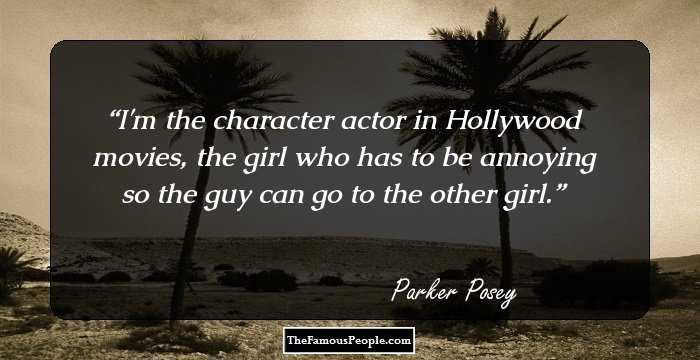
I'm the character actor in Hollywood movies, the girl who has to be annoying so the guy can go to the other girl.
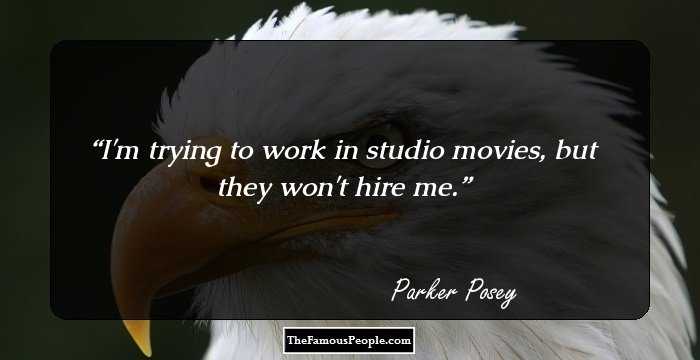
I'm trying to work in studio movies, but they won't hire me.
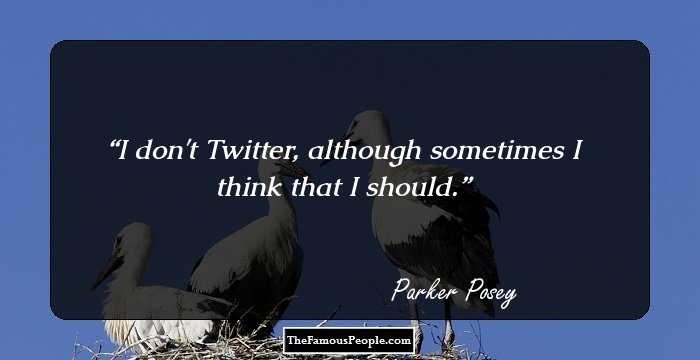
I don't Twitter, although sometimes I think that I should.
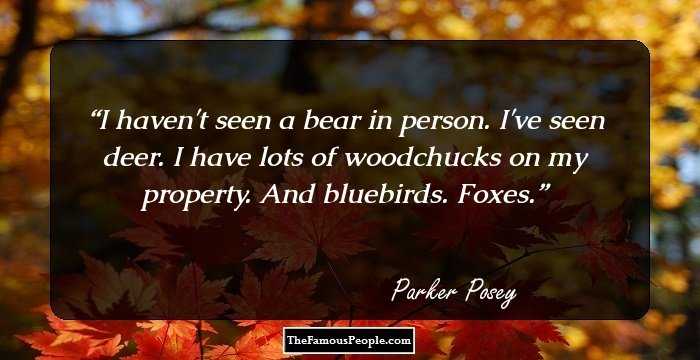
I haven't seen a bear in person. I've seen deer. I have lots of woodchucks on my property. And bluebirds. Foxes.
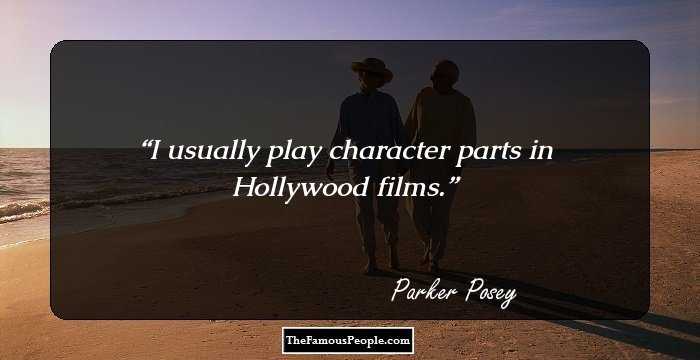
I usually play character parts in Hollywood films.
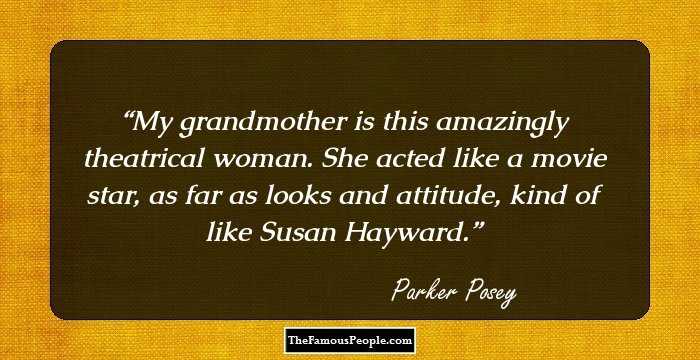
My grandmother is this amazingly theatrical woman. She acted like a movie star, as far as looks and attitude, kind of like Susan Hayward.
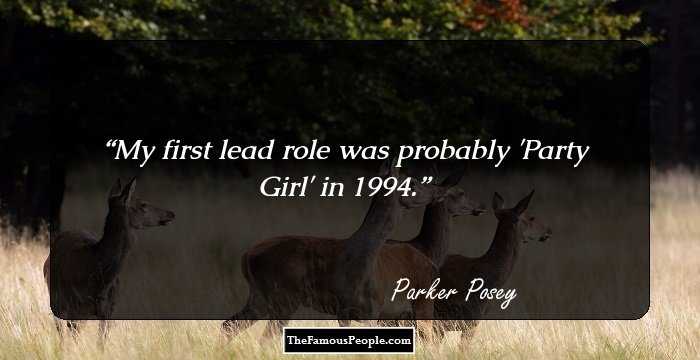
My first lead role was probably 'Party Girl' in 1994.
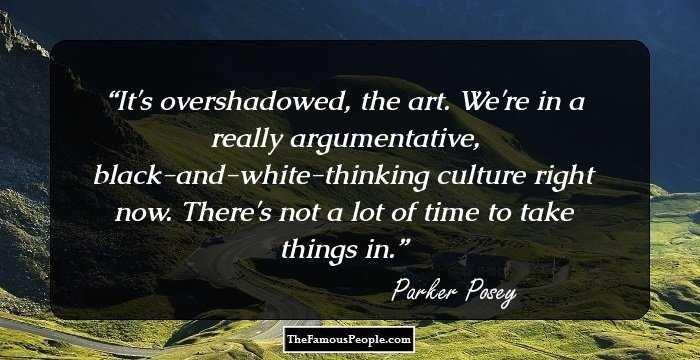
It's overshadowed, the art. We're in a really argumentative, black-and-white-thinking culture right now. There's not a lot of time to take things in.

